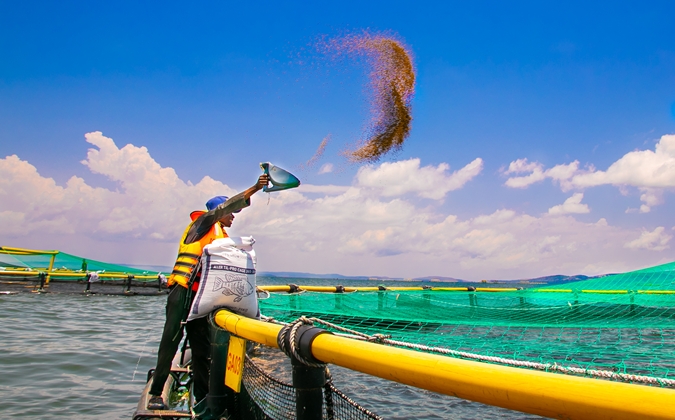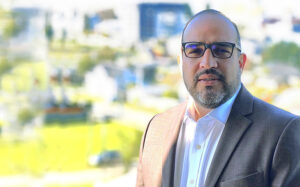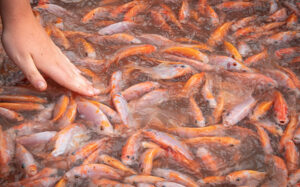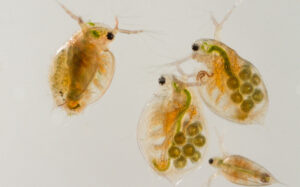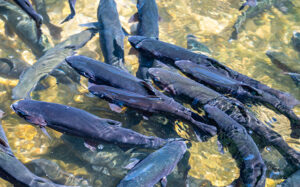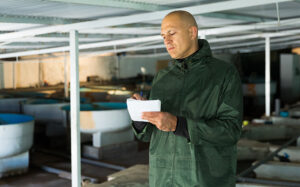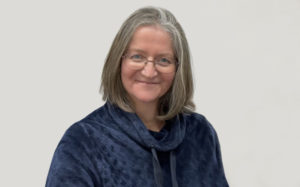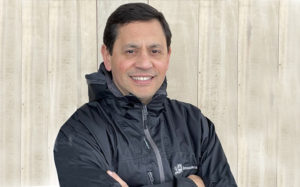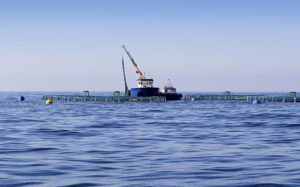Bringing Africa’s aquaculture leaders together to ensure a sustainable future
The freshly formed African Aquaculture Business Leaders Network aim to use the Global Salmon Initiative’s (GSI) model of uniting business leaders to accelerate the sustainable development of African aquaculture. Sophie Ryan from GSI told us about what’s been achieved so far.
FEED
Probiotics help tilapia grow and fight disease, say scientists
Feeding Nile tilapia probiotics leads to improved health and performance, according to work analyzing research to date.
Fishmeal substitute made from zooplankton could boost tilapia growth and health
A feed made from the zooplankton daphnia boosted growth rates of red tilapia fry when used as a partial replacement for fishmeal, but too much daphnia had the opposite effect.
Yeast could aid shift away from fish-based diets in rainbow trout aquaculture
Torula yeast could be a promising option for inclusion in non-fishmeal feeds, with scientists finding links to production and immune improvements in a study using rainbow trout.
Managing health issues in the fast-changing aquaculture industry
An interview with Stian Johnsen, project manager for the World Organization for Animal Health
The importance of benthic monitoring for aquaculture sustainability
An interview with Kate McEwen, head of environmental services at PHARMAQ Analytiq
Cutting antibiotic use in Chile’s growing salmon sector
An interview with Francisco Vallejos, MV, deputy health manager for Camanchaca SA.
How to balance fish welfare and environmental protection in aquaculture
Fish farmers’ efforts to protect the environment often come at a cost to fish welfare, say scientists at the University of Melbourne, in a new opinion paper.
- « Previous
- 1
- 2
- 3
- 4
- Next »

